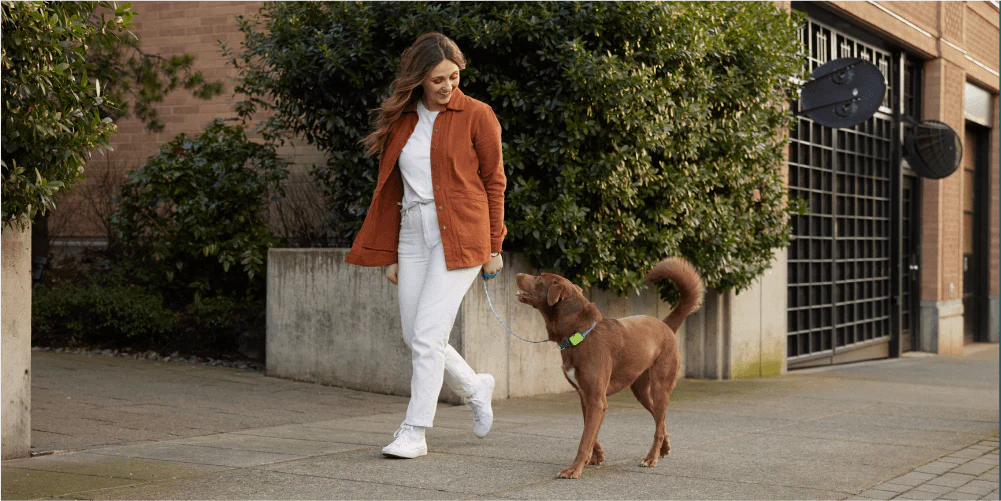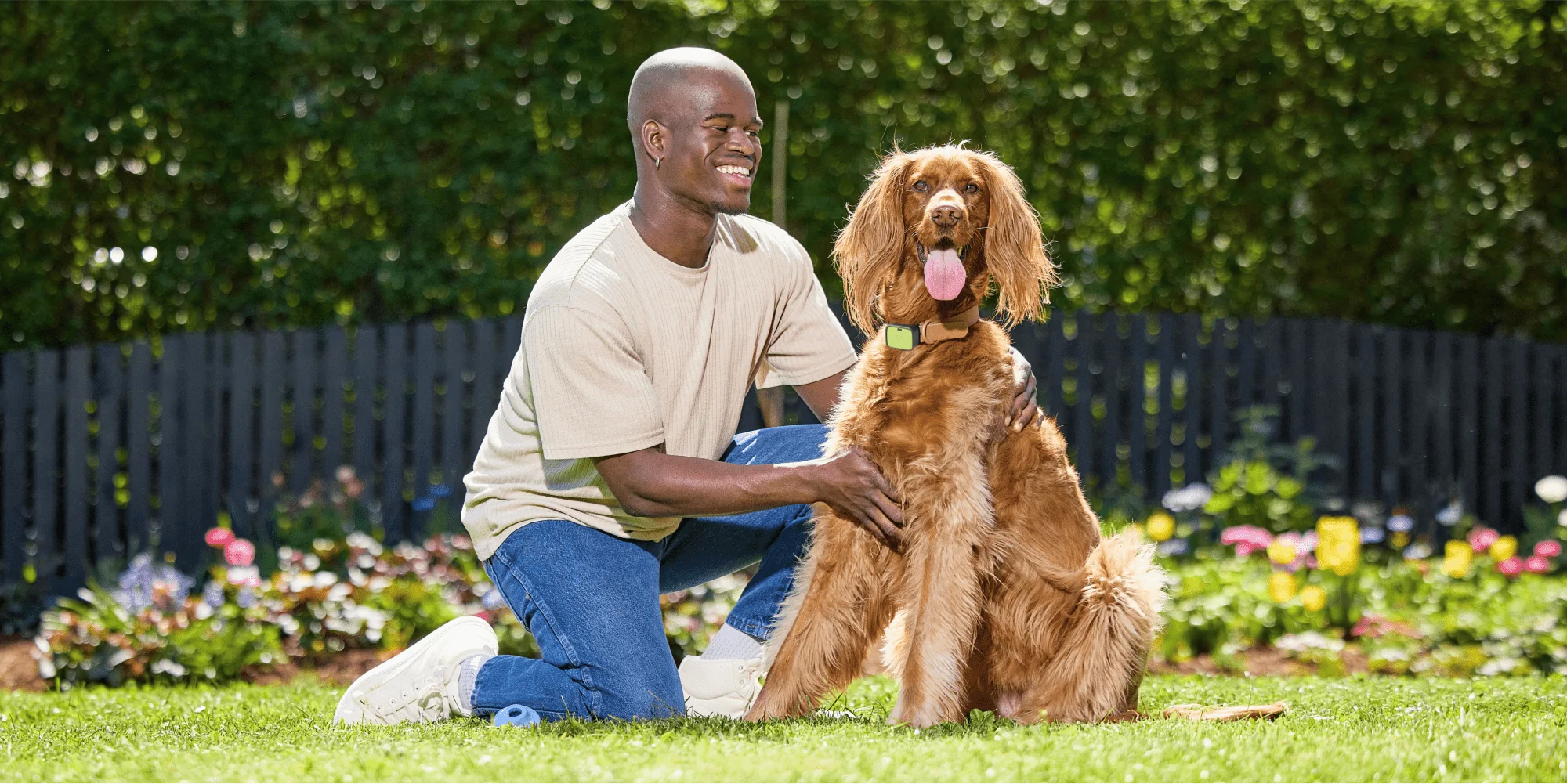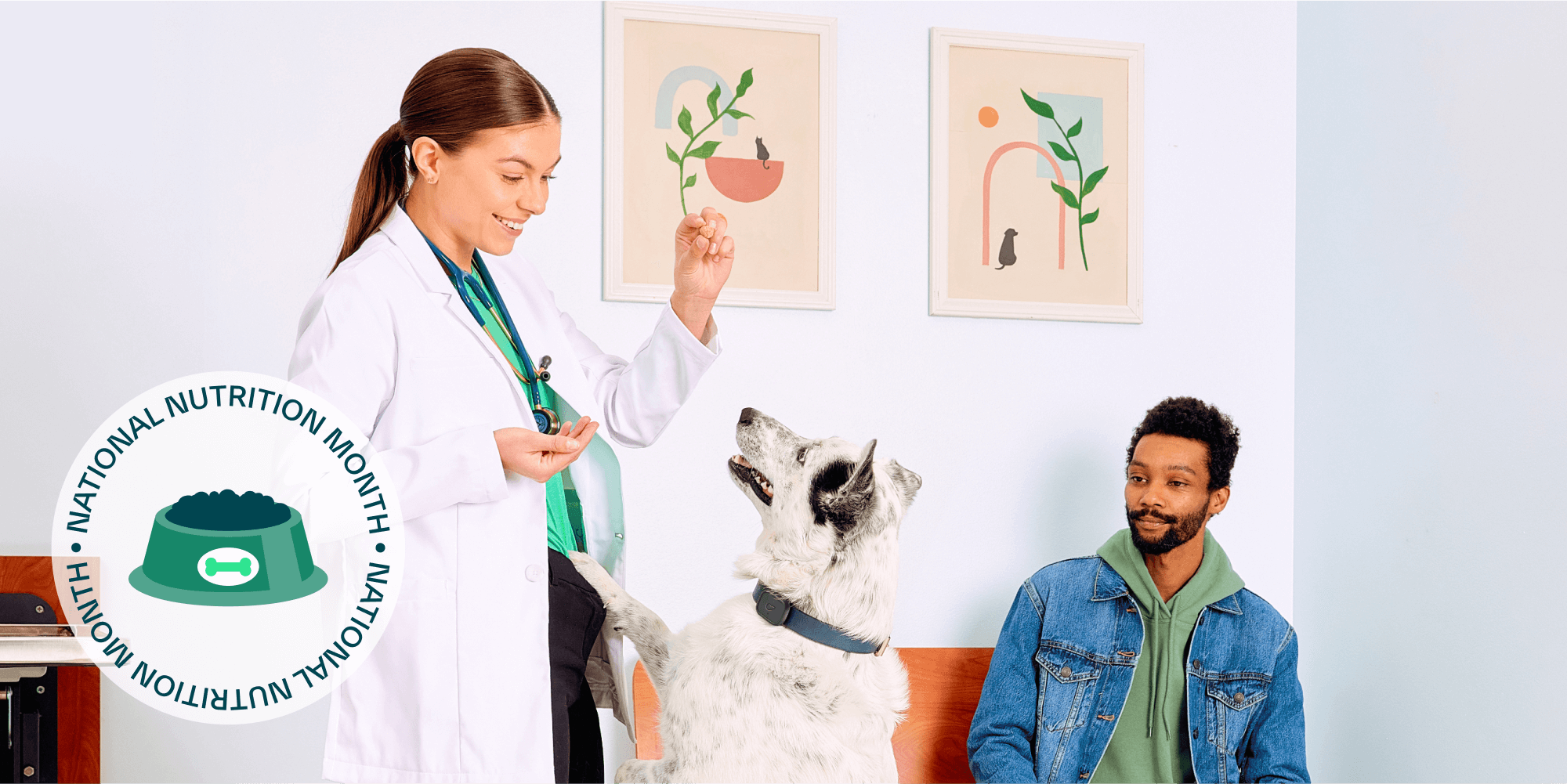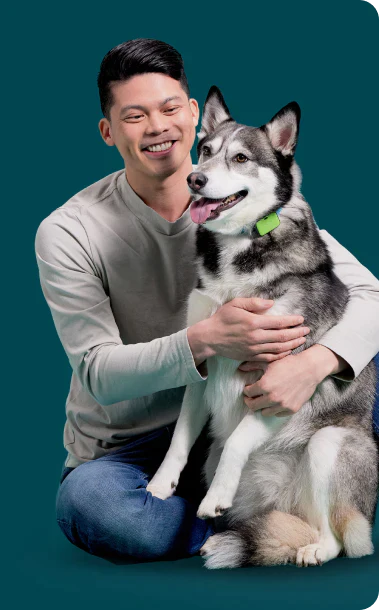Why Isn’t My Dog Eating?

When a dog that normally comes running at the sound of kibble hitting the bowl loses interest in eating, pay attention.
Dogs can lose their appetites for a number of reasons ranging from stress to upset stomachs. Your Whistle Health, Health & GPS and Health & GPS+ track your dog’s eating habits and will send alerts if your dog suddenly loses their appetite.
If a loss of interest in food has you wondering, “Why isn’t my dog eating?” these things might be to blame.
Common Reasons Dogs Stop Eating
-
Illness: Loss of appetite is often one of the first signs of sickness. Several common illnesses from parasites, viruses and gastroenteritis to kidney failure and cancer can cause dogs to skip their supper.
Skipping one meal isn’t a big deal but call talk to a vet if your dog declines dinner for more than 24 hours. Whistle Health, Health & GPS and Health & GPS+ all offer the “Ask a Vet” feature that connects you with a vet via call, chat, video or email.
- Dental disease: An infected or broken tooth could make it too painful for your dog to chow down on their dinner.
- Stress: When a change in eating habits coincides to other changes like moving to a new house, a shift in feeding schedules or the addition of another four-legged family member, stress might be to blame. Separation anxiety could also cause dogs to stop eating.
- Vaccinations: Routine vaccinations are important for good health. Sometimes, dogs feel a little “off” after a vaccination and would rather curl up for a nap than show up for supper. Loss of appetite is a common—and temporary—side effect of some routine vaccinations. Your vet can advise when your dog’s appetite will return.
What To Do If Your Dog Isn’t Eating
Wondering how to get a dog to eat? Try these tricks:
- Switch foods: Some dogs are picky eaters. If your dog turns up their nose at their regular kibble, consider adding a “topper” or wet food to their meals. Dogs have strong senses of smell and these more aromatic options could be just what they need to start eating again.
- Stick to a schedule: Dogs love routine. In fact, a shift in schedules might be a key reason dogs stop eating. Establish a feeding schedule so your dog knows exactly when to expect breakfast and dinner and responds by cleaning their bowl.
- Cut back on treats: Your dog might be skipping supper because they filled up on treats during the day. Cutting back on treats could encourage your pup to focus on eating their regular meals.
- Turn it into a game: Instead of pouring kibble into a bowl, offer your dog their dinner in a puzzle toy or food dispenser. You’ll be providing a complete and balanced diet with a side order of fun.
- Reduce stress: Consider the things that could be causing your dog to feel ill-at-ease. Dogs that are too amped up to eat might need a walk before dinner and nervous dogs might need a crate or other quiet spot to eat their meals without disturbances from other pets or people.
- Call your vet: A complete and balanced diet is essential for your dog’s health. Skipping an occasional meal isn’t a big deal but a pattern of decreased appetite requires attention. Make an appointment with your veterinarian if your dog isn’t eating.
How Whistle Tracks How Much Your Dog is Eating
You might not notice small changes in your dog’s appetite but Whistle Health, Health & GPS and Health & GPS+ use algorithms to track these patterns and alert you if your dog is eating less.
Your Whistle device tracks all of your dog’s health behaviors for the first week to create a personal baseline. Once their normal behaviors are established, Whistle Health, Health & GPS and Health & GPS+ will send alerts when behaviors change from day-to-day.

These personalized insights give you the information you need to talk to your veterinarian about what might be causing a loss of appetite and allow you to take action to address any health issues.

















